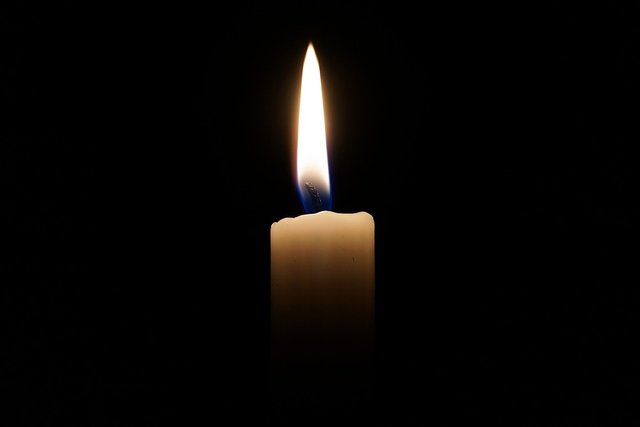The Grief Process is a Process and Never a State!
THE GRIEF PROCESS IS A PROCESS AND NEVER A STATE!
Let's look at some basic truths and ideas in regards to death.
Death takes time to deal with. It is never easy and it is a part of life.
Death often transforms the people that are still alive as they are left with the grieving process.
Grief is not always death sometimes it is divorce and separation from loved ones, or even the job.
Death is significant, yet it is because of the "finality" of it all.
Death confronts the mortality of us all. It exposes us to our finiteness in this world.
Death takes time and the more it is not processed the more you feel stuck about it. Unresolved feelings can create that feeling of stuck-ness about death. You are a process, life is a process, and death is a process.
We need to understand a few ideas, and understand some key principles.
There's no prize or principle in hearing that someone else is worse off than you are; hurting
more, or losing more. This is where people are trying to "Silver line" the death making it seem that others are worse off. We all process pain differently. Some face death and some run away, and some repress or suppress it.
We can understand Grief in a few different ways and it will be dependent on a few factors including:
• Strength of emotional attachment to the person they lost.
• The strength to which person that boosted or enhanced your life.
• The depth and length of time with the relationship.
• Nature of death and how it occurred.
• The more violent the death the more the bereaved "feels cheated" out of destiny figuratively speaking of course. This is a perception.
There is the Process of Grief also known as “Bereavement”, and it suggests four basic ideas in the grief process.
NUMBNESS: emotions are frozen, or blocked. Unable to express.
PINING: desire to bring back the lost. The "I wish statements" and the "I wish they could come back." This can lead to denial and that is part of the process if not handled correctly.
DEPRESSION: preoccupation with the loss. This is connected to looking at the past all the time. If you want to be depressed just look at the past and make comparison while you are there.
RECOVERY: development of a renewed identify. This is when they themselves have been transformed.
People suffering from grief can go through dozens of emotional processes.
The very shock and disbelief of what happened can often bring on the feeling of numbness, as if things were not real.
The feeling of fear and the understanding of their own mortality and presented finite limits this creates fear for the safety of oneself or one’s family.
The over whelming anger at the injustice of how the death happened this creates general sadness and can consume the grieving person. We often see guilt for having feeling helpless or emotional and not being able to "be there" this comes down to self blame. Quotes like "I was unable to save them." Sometimes the person leaves behind un-conflicted arguments people can often die mid-argument and self blame and guilt will grow.
When you want to moving through the Grief Process there are some important ideas that you need to know.
You must feel SUPPORT. Death can raise all types of feelings like guilt, blame, and even anger.
You can slowly face REALITY. The process of recovery is linked directly to an "acceptance" of the loss if you don't accept it often enough anger will rise up. Acceptance will not come until reality is faced. We all have to come to terms with what happened and often this can be a slow process, yet acceptance can take time. I say this from the heart and with care.
One should express their FEELINGS (emotional burst) and it seems important to many grieving people
that emotional release be encouraged.
These feelings wash over us with all kinds of other emotions and grieving people can be helped, encouraged, and even allowed to express their feelings. This may mean tears, talking, and even acting
out in an angry manner.
Often enough in life our “would-be helpers” suppress rather than encourage and facilitate emotional release. In our society, people often get uncomfortable if you demonstrate your reaction to loss and pain openly. Emotional release is not often supported in most circles even from a cultural perspective or even a masculine perspective there are a lot of stigmas that pose issues and become barriers.
If you are a person with unresolved feelings we can talk about it. Death is a part of life. It is a process much like life. The more you understand it the better you work through it.

